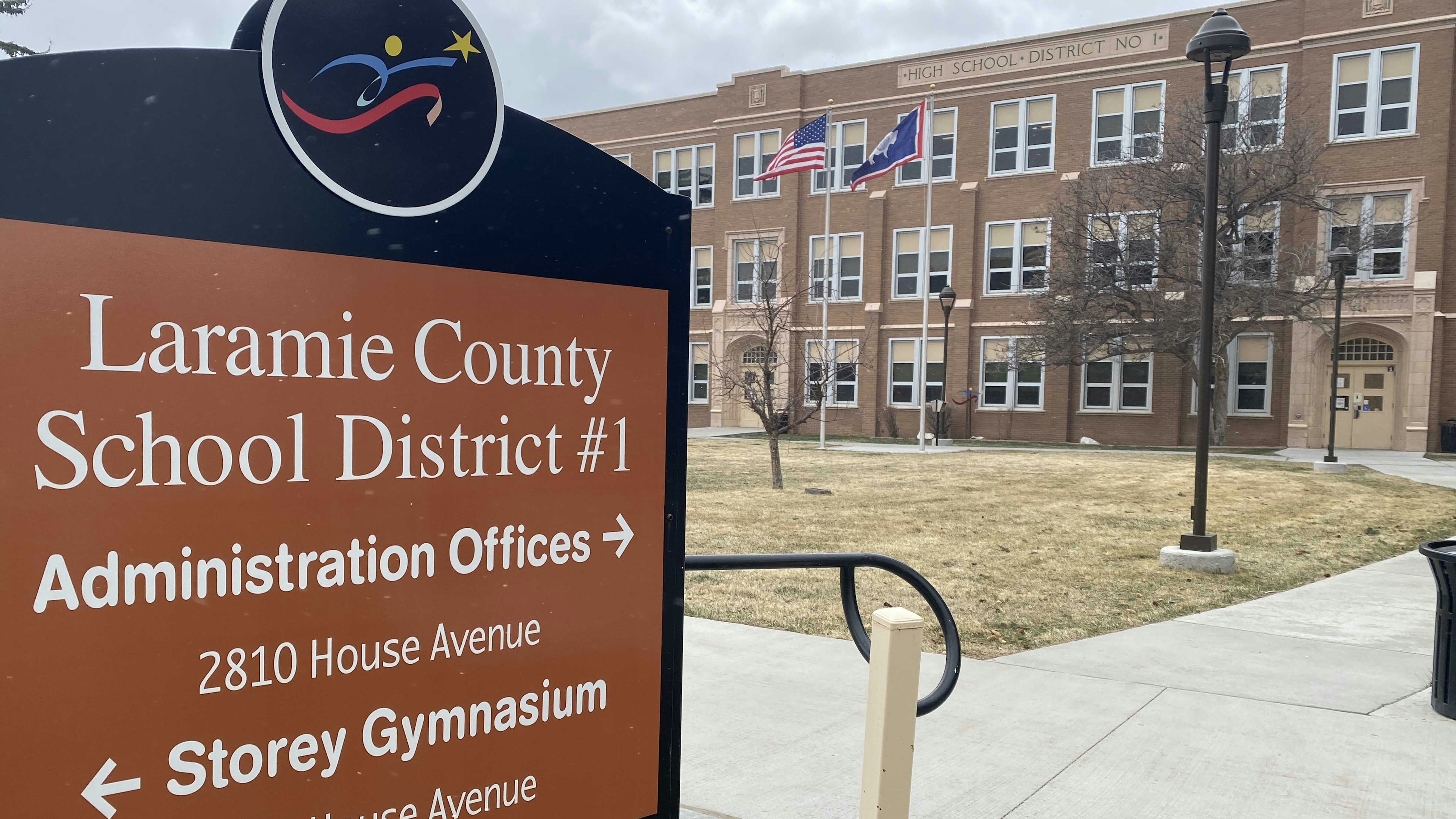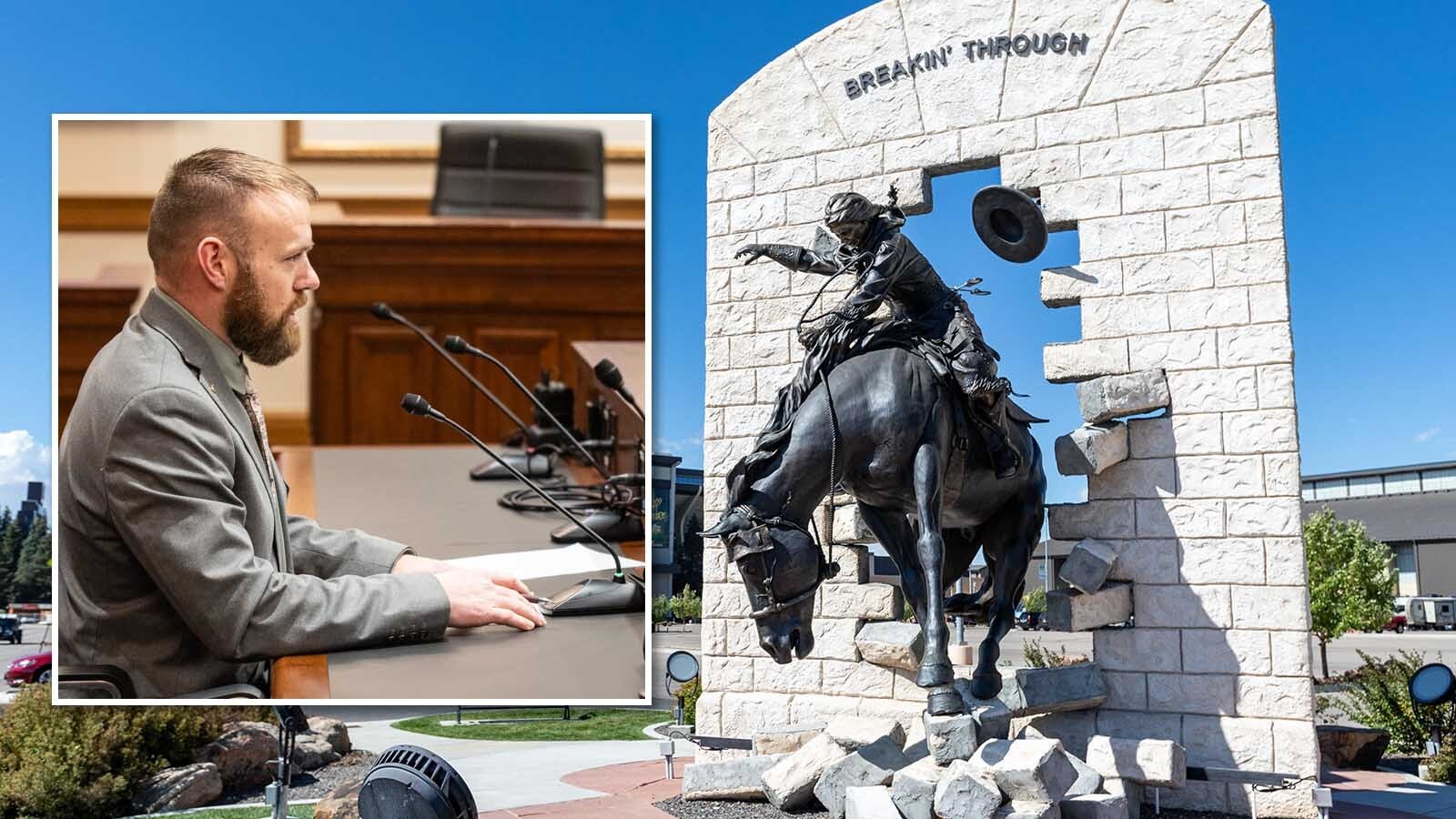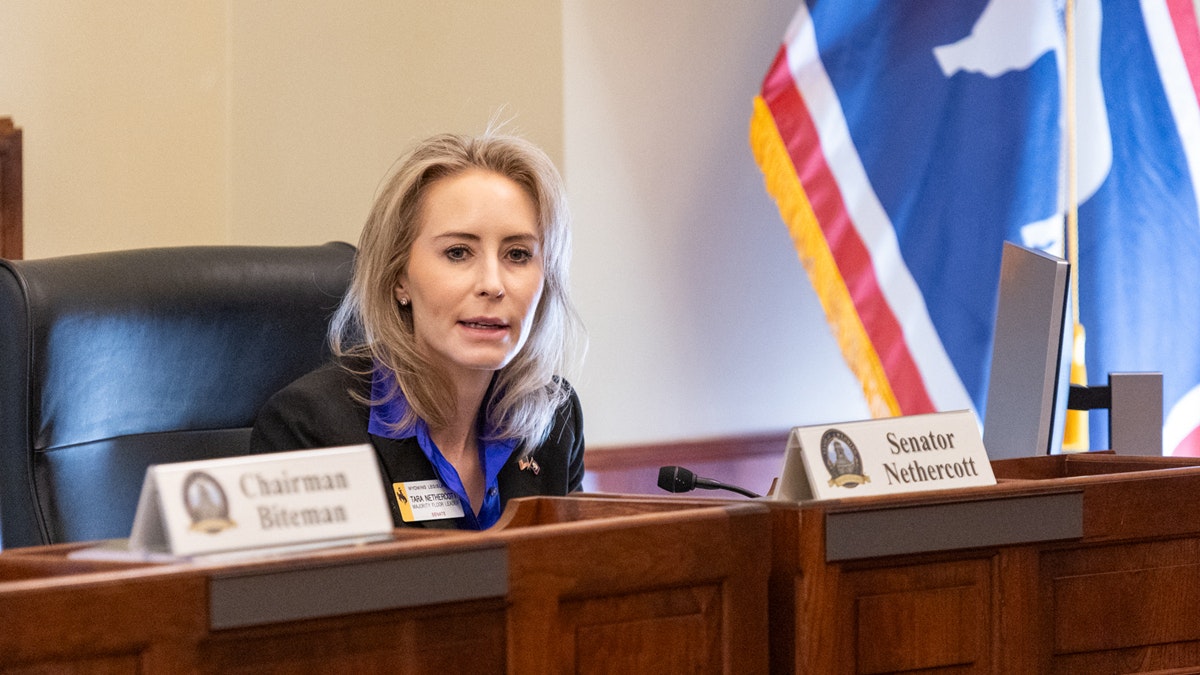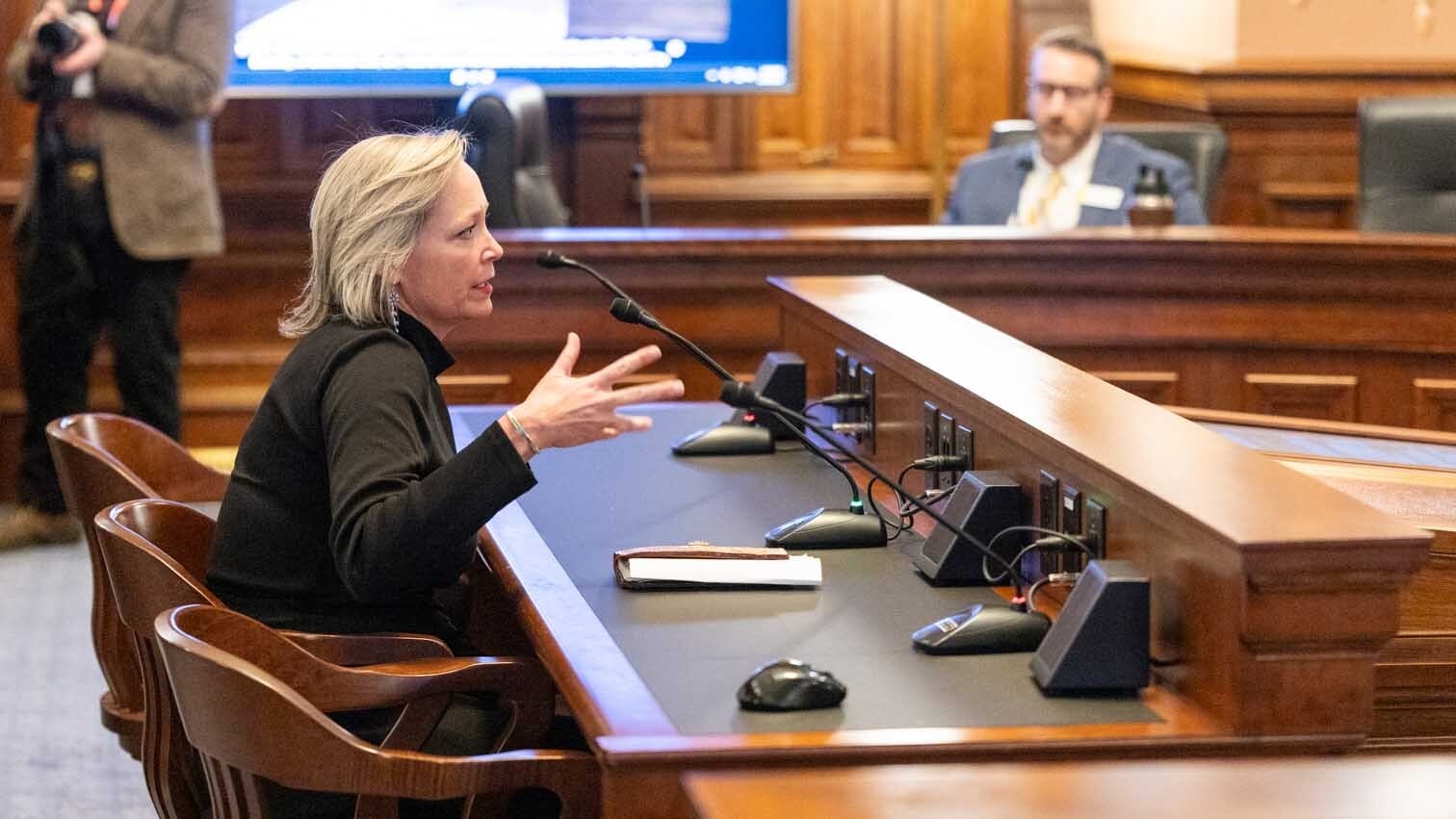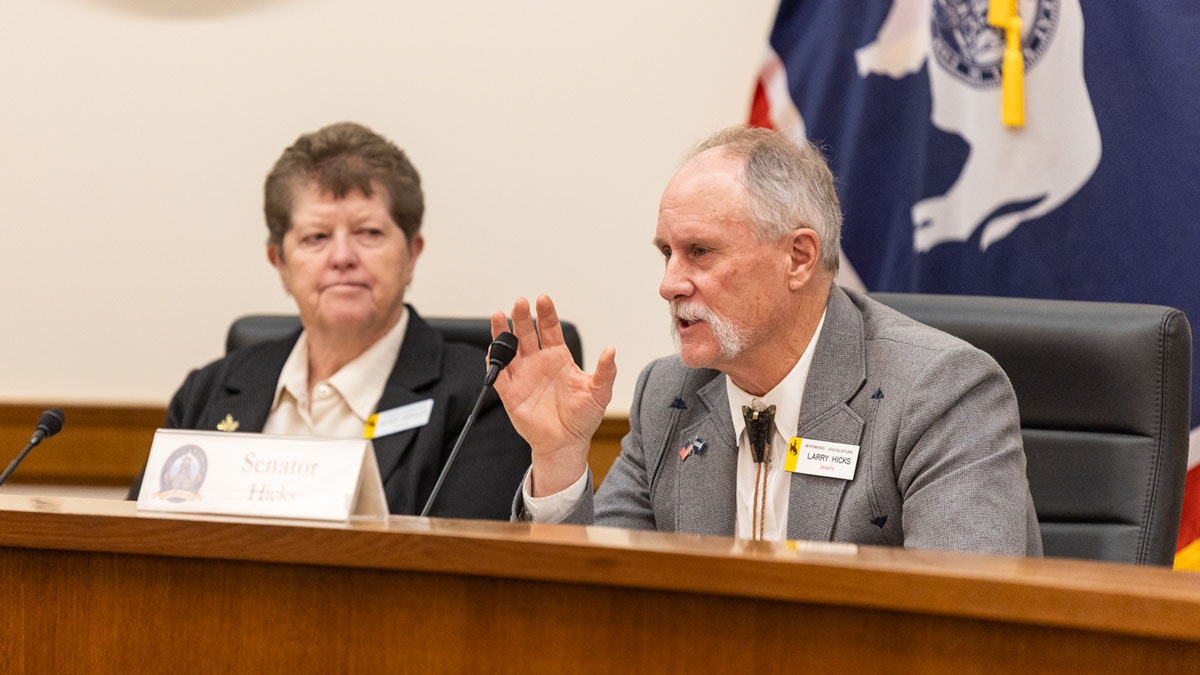Legal battles over educational funding has a long and storied past in Wyoming.
At the time of statehood in 1890, Wyoming included a requirement in its Constitution for the state to provide “adequate" and "equitable" funding for public school instruction.
These clauses have served as a basis for various challenges to the way the state funded education throughout the years, both in how much money is allocated for public schools and how it’s distributed.
The latest legal barrage was fired last year when the Wyoming Education Association (WEA) filed a complaint against the state in Laramie County District Court, accusing it of violating the Wyoming Constitution by not providing “adequate funding” for Wyoming’s public schools.
Recurring Fight
Mark Klaassen, deputy attorney general for the Wyoming Attorney General's Office, told the state Joint Education Committee meeting Tuesday morning that this latest lawsuit and older ones already adjudicated rehash the same issues.
The courtroom battles go back more than 50 years to the 1971 case of Sweetwater County Planning Committee for Organization of School Districts v. Hinkle. In this case, two school districts fought over the Bairoil school district to enhance their tax bases.
The court told the state Legislature these types of fights could be avoided if ad valorem taxes for schools were equalized throughout the state.
In 1978, the Washakie County School District and a number of other appellants sued the state over what they claimed were inequalities in the funding disbursal system for the state. In this case, the Wyoming Supreme Court ruled the entire school finance system unconstitutional.
In a series of four lawsuits over the 1990s and early 2000s, the Supreme Court also ruled on lawsuits brought by the Campbell County School District, where it similarly argued the state’s funding system resulted in inequities and failed to satisfy its constitutional obligation to provide equal educational opportunity.
By the last Campbell County decision in 2008, the Supreme Court ruled Wyoming’s funding system adequate and fair.
“I think that’s a very important point,” said state Rep. Martha Lawley, R-Worland.
Adherence To The Constitution
Lawley said the WEA isn’t necessarily attacking the constitutionality of the system itself, but the way it functions and perceived lack of compliance on the part of the Legislature to fulfill its constitutional obligation.
“I don’t think any of the parties are interested in re-litigating the funding model itself,” Klaassen said.
Klaassen said there’s always been tension between the discretion and prerogatives of the legislative body and the state Constitution.
“The courts have endeavored in a variety of ways and fashions over the years to figure out what that difference is,” he said.
Facilities
In its lawsuit, the WEA says the state must find a dedicated revenue stream for school facilities rather than finding new money every budget cycle.
State coal lease bonuses, previously a major source of school construction funding, have disappeared as the coal industry contracted. Wyoming received its last payment of lease bonuses in 2017 and is not expecting any more in the foreseeable future. From 2005-2018, coal leasing bonuses funded a huge majority of school construction in Wyoming, ranging from about $400 million in 2005-06 to $100 million in 2017-18.
Sen. Bo Biteman, R-Ranchester, pointed out there is nothing in the Wyoming Constitution that requires a dedicated revenue stream.
“Are they trying to use the court system to circumvent the legislative process to get that into the Constitution without the Legislature’s involvement?” he questioned.
The WEA has said it is simply seeking out compliance with the Constitution as previously determined by the courts. Klaassen said the state will argue that the Legislature has the discretion to determine where the funding will come for these facilities.
The WEA argues that this is no longer the case and wants better funding for operations and facilities in Wyoming. It says the state has been manipulating and changing the way it evaluates its facilities in order to avoid funding the construction of new ones.
Suitability is a particular sticking point in determining the adequacy of facilities, a concept that has been debated in the state Legislature a number of times in the past.
“In some manners it’s been used to define things such as tech-readiness, adequate lighting, ventilation, air quality,” Klaassen said. “Those things that can affect a space beyond its overall condition.”
Operations
When it comes to operations, the WEA is specifically challenging the External Cost Adjustment (ECA) formula the state uses to determine staff salaries. It claims there has been a lack of ECAs performed and the ones that have been have not been sustained.
Also challenged is overall salary levels, which the WEA says has resulted in Wyoming losing its competitive advantage over other states attracting and retaining teachers.
The WEA also wants more money for other staffing components like tutors, counselors, social workers, nurses and other support staff. The lawsuit seeks funding for school lunch program expenses and challenges the assertion that the state does not pay for school resource officers.
Trial Details
The case has been set for a five-week bench trial in June of 2024.
Klaassen said as far away as this date may seem, it still may not be enough time for both parties to inspect evidence and prepare for a trial.
Last year, the state asked Laramie County District Judge Peter Froelicher to throw out the lawsuit, saying the plaintiffs lack jurisdiction and standing to bring the lawsuit.
In a late 2022 decision, Froelicher dismissed the WEA’s requests for punitive damages and attorney’s fees, but still agreed to hear the case, finding the organization has legal claims that could be addressed.
Eight different school districts have enjoined the WEA in the lawsuit, from Albany, Campbell, Carbon, Laramie, Lincoln, Sweetwater and Uinta counties.
Klaassen said the Attorney General’s office is providing regular updates on the case to Legislative Service Office staff, who he referred to members of the Joint Education Committee to consult if they have questions on the case. The State Attorney General’s office is representing the Wyoming Legislature in the case, as it is the body that makes laws for the state.
Contact Leo Wolfson at Leo@CowboyStateDaily.com.

